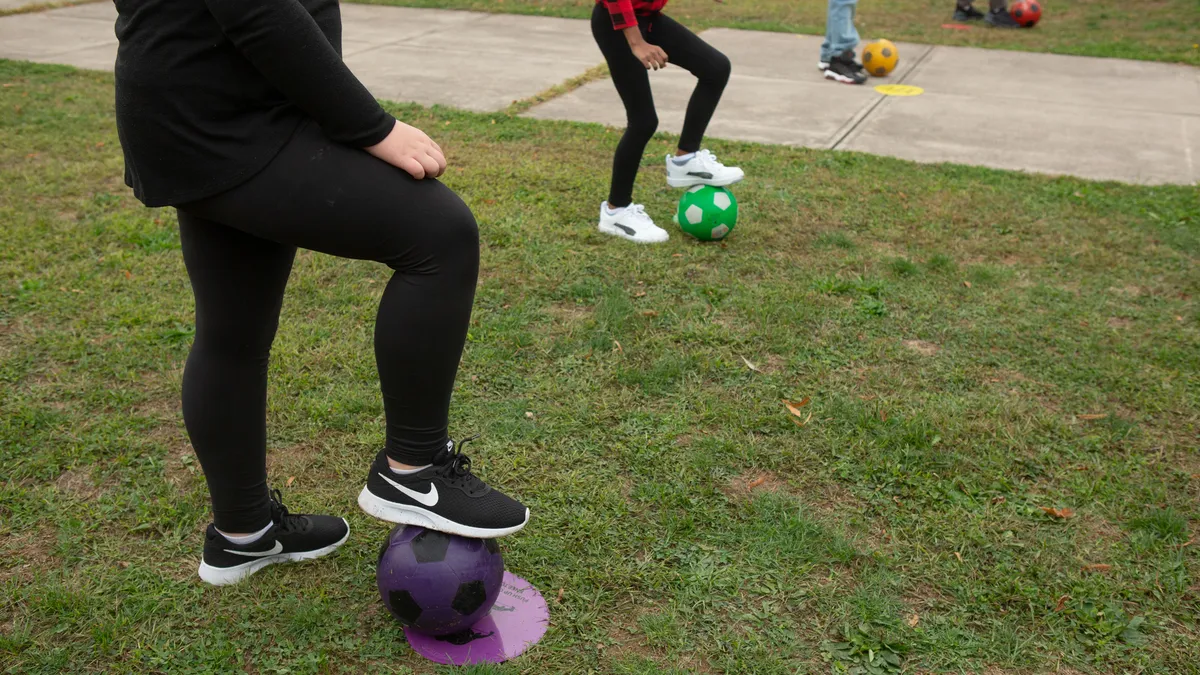Dive Brief:
-
Iowa Gov. Kim Reynolds last week signed a law that will ban transgender girls and women from playing on school and college athletic teams aligning with their gender identity. "Only female students, based on their sex, may participate in any team, sport, or athletic event designated as being for females, women, or girls," the new law states.
-
Supporters of the legislation, which joins a string of others passed in red states, say transgender girls jeopardize the rest of a team's chances of winning and gaining resulting opportunities like scholarships and recognition. Opponents say there is no data to support that claim and that transgender students should be made to feel they belong.
-
Effective immediately, the law gives non-transgender girls the ability to sue for damages and injunctions "if a student suffers direct or indirect harm as a result of a violation."
Dive Insight:
Iowa joins a growing number of states banning the participation of transgender students on athletic teams that align with their gender identity. States including Idaho, Alabama, Florida, Tennessee, Mississippi and Arkansas have all passed similar legislation. Additional states have proposed the idea.
Iowa's iteration of the law would ban transgender girls from participating in sports teams at public and private schools, as well as at community colleges and four-year colleges and universities.
The state's move comes after President Joe Biden and U.S. Secretary of Education Miguel Cardona made clear their support for LGBTQ+ students.
Specifically, the Biden administration swiftly reversed a decision by former Education Secretary Betsy DeVos on an Office for Civil Rights case brought against six Connecticut school districts and the Connecticut Interscholastic Athletic Conference. In that case, DeVos interpreted the Supreme Court's 2020 decision in Bostock v. Clayton County as not applying to Title IX and transgender students. Bostock held that LGBTQ individuals are protected against sex discrimination under employment law.
"We're going to continue to fight and defend and support and stand behind our LGBTQ and our transgender students, because for far too long they've been marginalized, and sadly — during the pandemic — even elected officials have marginalized them," Cardona said Monday.
"And we're not going to stand by idly watching that happen," Cardona said. "We're going to lift up their voices and make sure that they recognize that our schools are for them and that they have the same opportunity any other students have. So not only in funding, but in policy and how we use the bully pulpit."
In the wake of the Bostock Supreme Court decision, and despite a more conservative bench, it is unlikely that legislation such as Iowa's will stand in the high court, said Scott Lewis, co-founder and advisory board member of ATIXA, the Association of Title IX Administrators.
Lewis said the court, despite being right leaning, would likely decide that gender identity and sexual orientation count as sex under Title IX. Not doing so would only challenge the court's own decision as, in the Bostock case, the court decided 6-3 in favor of LGBTQ individuals.
"I think the question is going to hit the court most likely in the next term," Lewis said. "It would be hard to reconcile Bostock and this to say that the protection doesn't extend."
Prominent cases in Connecticut and Pennsylvania that bring into question whether Title IX protects students from discrimination based on sexual orientation and gender identity have been left hanging as question marks for at least a year, he said.
In the meantime, those challenging legislation on the local level can file for an injunction, arguing athletes who want to compete but have been banned from doing so have been "irreparably harmed," added Lewis.
"Pay close attention to the court and pay close attention to your state houses," Lewis said.
















